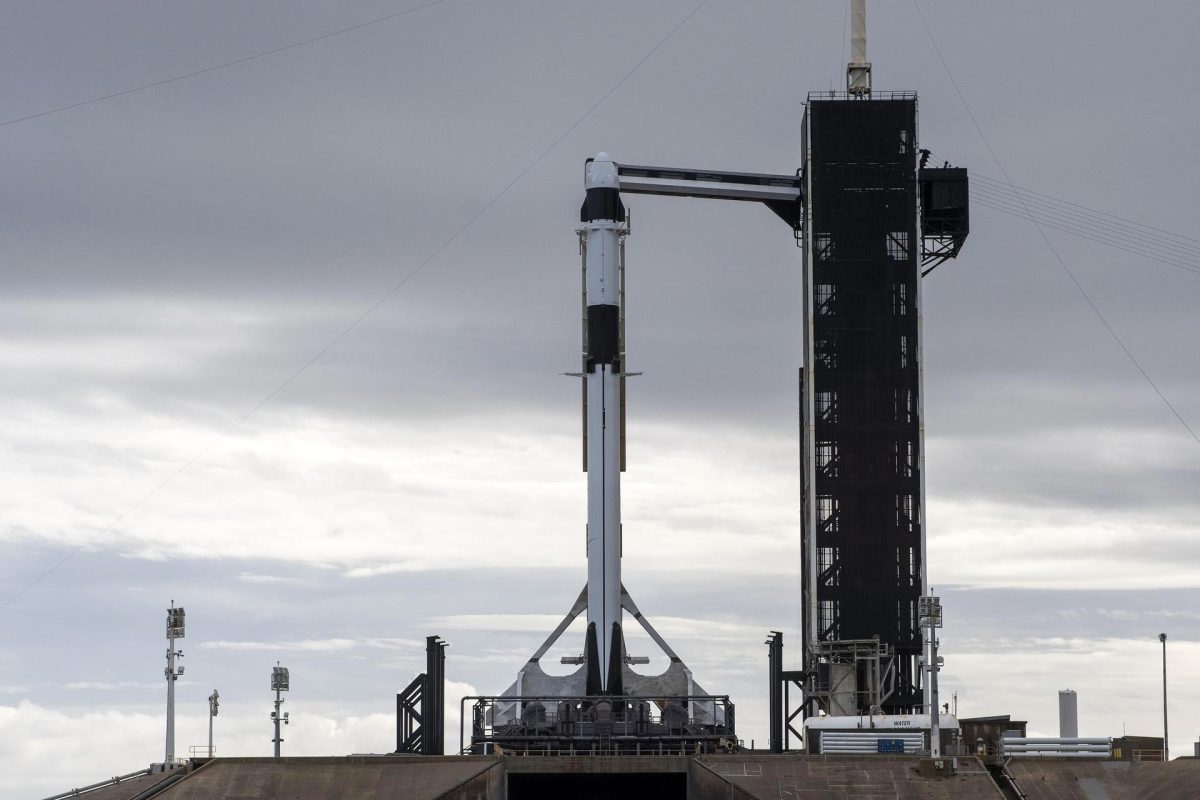A SpaceX Falcon 9 rocket, with the company’s Dragon cargo spacecraft atop, is raised to a vertical position at NASA Kennedy Space Center’s Launch Complex 39A on November 21, 2022, in preparation for the 26th commercial resupply services launch to the International Space Station. The mission will deliver new science investigations, supplies, and equipment to the crew aboard the space station, including the next pair of ISS Roll Out Solar Arrays (iROSAs). Credit: SpaceX
NASA’s SpaceX CRS-26 Commercial Resupply Mission Scrubbed
Due to poor weather conditions in the area along Florida’s Space Coast for today’s planned launch of SpaceX’s 26th commercial resupply services mission to the International Space Station, SpaceX and NASA now are targeting liftoff for 2:20 p.m. EST on Saturday, November 26, from the agency’s Kennedy Space Center in Florida. Launch coverage will begin at 2 p.m. EST on NASA TV, the agency’s website, and the NASA app.
A launch Saturday would lead to docking Sunday, November 27, for the Dragon to deliver important research, crew supplies and hardware to the crew aboard the orbiting laboratory. Docking coverage will begin at 6 a.m. with the spacecraft planned to arrive at the space station around 7:30 a.m.

Seen here is the SpaceX Dragon cargo spacecraft atop the company’s Falcon 9 rocket after being raised to a vertical position at NASA’s Kennedy Space Center in Florida on November 21, 2022, in preparation for the 26th commercial resupply services launch to the International Space Station. The mission will deliver new science investigations, supplies, and equipment to the crew aboard the space station, including the next pair of ISS Roll Out Solar Arrays (iROSAs). Credit: SpaceX
Just 10 minutes before the 3:54 p.m. EST liftoff, the countdown continued. Fueling of the Falcon 9 second stage had already begun. The next steps were to chill the Falcon 9’s engines to condition them for launch, run the prelaunch checks on the flight computer, and then bring the rocket’s propellant tanks to flight pressure. SpaceX had given a “go for launch.” Then shortly before liftoff, mission managers scrubbed the launch due to poor weather conditions in the area of NASA’s Kennedy Space Center in Florida.
The rocket due to launch is the SpaceX Falcon 9, a two-stage vehicle topped by the company’s uncrewed Dragon spacecraft. The first stage of the Falcon 9 is powered by nine Merlin engines that ignite at T-0. The rocket’s second stage has a single Merlin engine that takes over after separation of the first stage. Merlin engines run on a combination of cryogenic liquid oxygen and a refined kerosene fuel called RP-1.
Installed atop the rocket, the cargo Dragon spacecraft is loaded with cargo bound for the International Space Station. The Dragon offers a pressurized section as well as an unpressurized “trunk” section for additional cargo. Loaded about the trunk is the next pair of ISS Roll Out Solar Arrays (iROSAs). Also located in the trunk are the spacecraft’s own power-producing solar arrays.
Share your story or advertise with us: Whatsapp: +2347068606071 Email: info@newspotng.com















